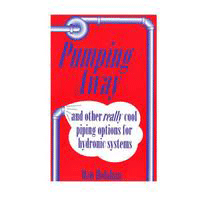
The executive retreat for Infor Global Solutions' distribution customers in October engaged attendees with the latest developments in the industry.
The company hosted an executive retreat at the Hyatt Regency Lake Las Vegas resort for its distribution customers. Infor Global Solutions reassured its customers of its capabilities despite the changes that have occurred.
Owned by a capital investment firm, Infor Global Solutions is about two-and-a-half years old. It recently acquired Aperum, NxTrend and daly.commerce and changed its name from Agilisys in September.
The company is entrenched in several vertical markets other than distribution, including discrete manufacturing and the automotive industry. “Distribution is our growth engine,” said Jim Schaper, chairman and CEO.
Almost 50% of large customers use reverse auctions rather than distribution according to a Pembroke Consulting survey, Ross Elliott, vice president of marketing and strategy, told conference attendees. How can distributors use technology to respond to that, Elliott asked?
Collaborative product offerings and strong management of customer relationships are key to future success for distributors, Elliott said. “The day of being an island unto yourself is gone,” he said.
Jeffrey Rosensweig, associate dean of the Goizueta Business School at Emory University, moderated a panel discussion that touched on industry collaborations.
David Pratt, president/CEO of Vanguard National Alliance and a member of the panel, said distributors are in danger of pushing themselves out of the chain. Those who have instituted an integrated supply process cannot roll it back now - it is moving toward making their companies indispensable.
Creating manufacturer alliances with those that have a strong international standing is essential and is expected by customers, he said.
The panel discussed the increased importance of technology for the quick responses the channel demands. How do you deal with a call that tells you a truck is arriving in 15 minutes with 50,000 items, one panel member asked. Future technology will address this situation.
The “e-uninterrupted environment” is creating a need for knowledge-based workers that bring a value that's not on the invoice, Pratt said.
Tom Freese, president of QBS Research and an author, discussed the evolving importance of the sales force in another session. Instead of despising salespeople, customers are learning to depend on them. To sustain a competitive advantage, a company's salespeople must be viewed as a valuable resource for solving customers' problems, Freese said. That's more effective than trying to offer the best product at a lower price.
Freese, the author of “Secrets of Question-Based Selling,” suggested questions that could improve business.
Peter Lotto, director of information services of Carrier Sales and Distribution, discussed how his company complied with requirements of the Sarbanes-Oxley Act of 2002, which requires public companies to provide access to accounting and financial records. He said the key success factors for implementation of any program are complete documentation and a strong partnership between the finance and information technology departments.
Jeffrey Rosensweig of the Emory University Goizueta Business School pointed out the “bright” areas of the world in a nighttime global satellite picture. Economically developed areas such as North America and the European Union were lit up at night on the image.
U.S. manufacturers perceive the wages in China as being much lower, but when adjusted to reflect their actual purchasing power in that country, China's wages are second only to the United States, he said.
In all, the increasingly diverse global economy leaves an optimistic economic outlook, he said.
- by Ashley Anderson



